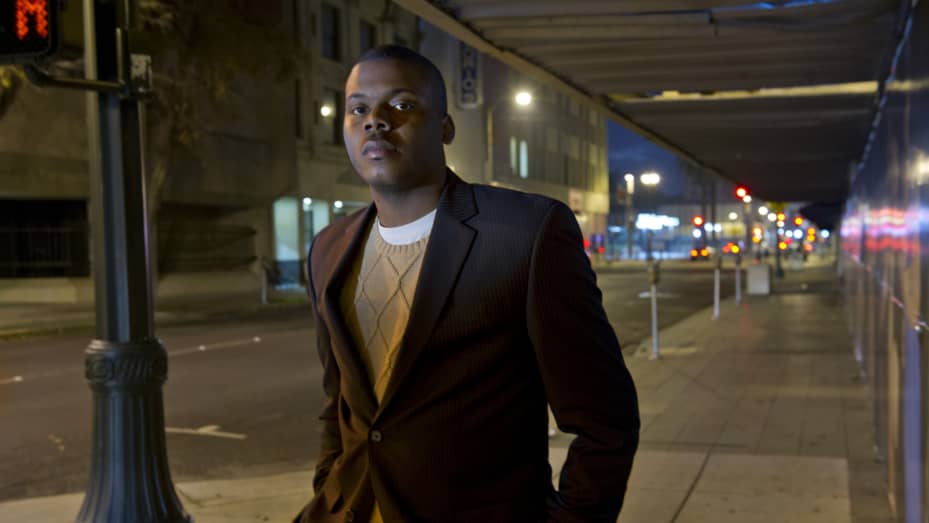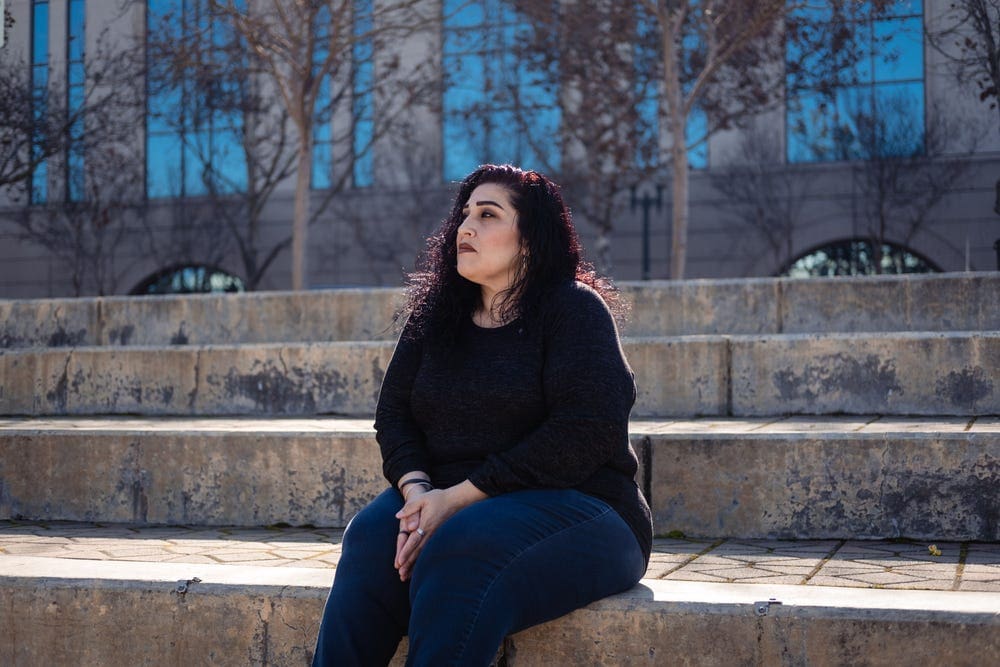By: Minerva Canto
Original post can be found here.
We now know what happens when we think the best of people in lower income communities: They thrive.
Treating people with dignity and allowing them to make their own choices is the premise behind a number of guaranteed income programs in force around the country. Study after study shows that participants in these programs do well, so much so that their health improves.
“Participants reported notably better mental health than other people with low incomes,” researchers found in a study released by the Urban Institute in February that examined a guaranteed income program in Washington, D.C.
Similarly, “Recipients saw statistically significant improvements in emotional health, energy over fatigue, and emotional wellbeing” — among the findings of an investigation of a program in Stockton, California.
And researchers behind a study from 2017 reported that “recipients experienced an 8.5 percent decrease in hospitalizations compared to the control group, especially for mental health, accidents, and injuries.”
These findings bode well as Los Angeles County launches the latest guaranteed income program this week. Like dozens of other municipalities nationwide with similar programs in the past two years, Breathe aims to provide participants “the chance to ‘breathe’ easier knowing they are more financially secure.”
The fundamental guideline for most guaranteed income programs is that participants can decide for themselves how to spend the money — without any restrictions.
For three years, 1,000 participants living in the county will receive $1,000 each month. Participants must meet low income eligibility requirements but will be chosen randomly. Breathe is believed to be the biggest and most extensive such program yet, in a county that’s the most populous in the country and where an estimated 25% of children live in poverty.
The city of Los Angeles already has a similar program underway. Meanwhile, California has earmarked $35 million over five years for guaranteed income pilot programs.
The fundamental guideline for most guaranteed income programs is that participants can decide for themselves how to spend the money — without any restrictions. These programs generally aim to help people in impoverished neighborhoods, who tend to be predominantly Latino or Black. Some guaranteed income programs target specific communities such as foster youth aging out of care or lower income college students.
Paula Hernandez, a participant in one Southern California program, says the extra money allowed her to pay her rent, and ensure she and her daughter had healthy food to eat after her savings ran out during the pandemic.
“I was always two or three hundred dollars short after my supervisor shortened my hours,” says Hernandez, who works at a small family restaurant, which didn’t need as many servers after it switched to takeout only. “Each month, I worried about how I would make the shortfall. So many sleepless nights and my days spent in a fog as a result.”
Before participating in the program, Hernandez was concerned about how the financial stresses would impact her 10-year-old daughter.
“I tried not to talk about money problems in front of her, but did she notice how many times I told her I wasn’t hungry as my stomach was growling with hunger?” she says. “Once I was receiving the money, I wasn’t always in a state of worry. Or hungry.”
California is leading the way when it comes to guaranteed income programs, in large part spurred by the success of a program in Stockton created by former Mayor Michael Tubbs.
Having access to healthy food is a primary indicator of wellness, and the lack of it can lead to serious medical problems such as diabetes and high blood pressure. Yet it’s estimated that nearly 11% of California residents don’t have enough to eat.
California is leading the way when it comes to guaranteed income programs, in large part spurred by the success of a program in Stockton created by former Mayor Michael Tubbs. He founded Mayors for Guaranteed Income in 2020 to help other municipalities replicate or advocate for these programs. To date, 62 mayors have signed on, including 14 in California, the most of any state.
“This has provided millions of families what I did for 125 families in Stockton,” writes Tubbs in his memoir, The Deeper the Roots, “the dignity of being able to breathe and to have the agency to make the right decision for themselves and their families.”
A guaranteed income program in Washington, D.C., helped people who live in an area known as Ward 8, where researchers found that “residents face higher rates of food insecurity and related health issues than residents in other parts of the city because of disinvestment and limited health care access.” For many years the area did not have a grocery store, making it a so-called food desert — affordable, nutritious food was inaccessible.
As a result, organizers of the guaranteed income program “saw unconditional cash transfers as an important mechanism for undoing Ward 8’s history of displacement and segregation.”
Importantly, organizers from four community-based organizations working together created a set of impressive guidelines to steer their decision-making and ensure racial equity for the program:
- We value the power of our residents to make their own decisions.
- We treat our community with respect.
- We will always act with integrity.
- We believe in a racially and economically equitable community.
As partners, organizers would consult these guidelines whenever difficult questions arose, such as when it came time to decide whether participants should get $5,100 in one lump sum or over five monthly payments. These values, specifically the first, called for residents to decide for themselves how they wanted the payments disbursed. The study showed that participants were thoughtful in making this decision, carefully considering their specific circumstances.
“Trusting folks to make their own decisions was key in many ways,” says Mary Bogle, an Urban Institute researcher who led the Washington, D.C., study.
This stance is starkly different from one commonly voiced by policymakers for decades.
“The idea that we were given this money to improve our lives was powerful. For the first time in a long time, I felt like someone believed in me.”
~Damon Jones, guaranteed income program participant
Past policies aimed at helping people with lower incomes treated them as would-be criminals. Policymakers agreed to provide cash aid or food benefits only with harsh restrictions and requirements to avoid fraud that they believed would otherwise ensue.
“Because of these perceptions we don’t unleash the power of the country to help people in any real way,” Bogle says.
The term “welfare queen” is racist. As single moms have been vilified, the holes in the safety net have only gotten bigger.
Indeed, it’s the poverty of choices that tends to hamper the outcomes of lower income people.
In his memoir, Tubbs details how he “fought against the bigotry of low expectations” from teachers and others when he was growing up in Stockton. Despite being a top student, he narrowly avoided the school-to-prison pipeline when he was nearly arrested over a high school senior prank, he writes. Thankfully, his grandmother was able to help smooth things over, and Tubbs graduated and continued to Stanford.
During Tubbs’ first successful run for city council, he visited residents in impoverished neighborhoods and saw the effect a low income can have on one’s health.
The correlation between income and health is suggested by statistical evidence. One 2021 report produced for the Federal Reserve Bank of Boston for which a number of studies were examined found that higher minimum wages for parents had a positive effect on children’s birth weights, that during pregnancy and early childhood it had positive health effects on children into their adulthood, and that higher minimum wages reduced the number of suicides. Researchers found other positive health benefits linked to higher incomes.
“The idea that we were given this money to improve our lives was powerful. For the first time in a long time, I felt like someone believed in me,” says program participant Damon Jones.
People from lower income communities have known and fought against the idea that poverty can be a never-ending cycle of broken dreams.
“Oftentimes, poverty in Stockton is a family heirloom,” Tubbs writes in his memoir.
Guaranteed income programs empower people to help break that cycle.
The post Basic Income Programs Are Triggering Health Benefits Across the Country appeared first on Basic Income Today.
This post was originally published on Basic Income Today.
 (@jack)
(@jack) 
